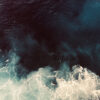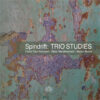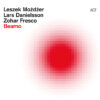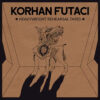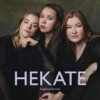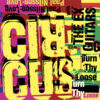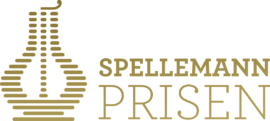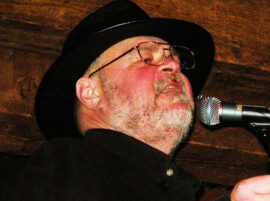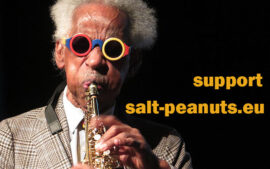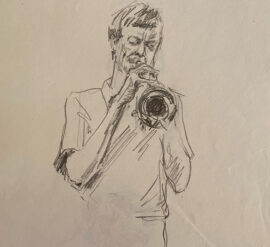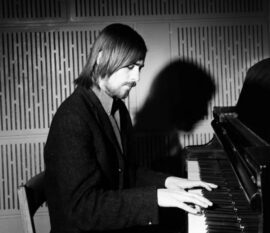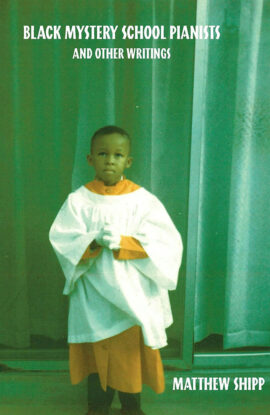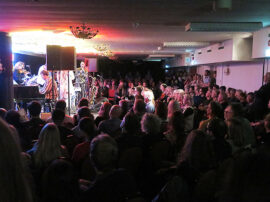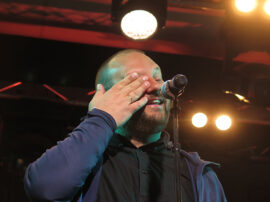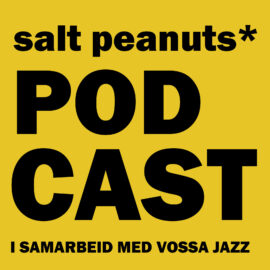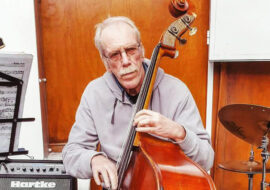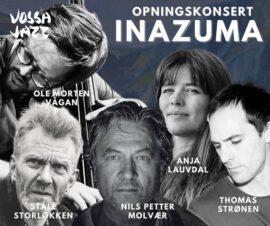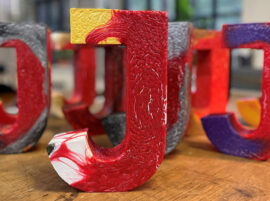
Portuguese prolific guitarist João Clemente created an experimental scene around the free improvised collective, label, and studio, Profound Whatever, located in the small and remote, mountainous community of the village of Pesinho.
Cume (Summit in Portuguese) brings together Clemente, adding electronics and percussion to his electric guitar (on the right channel), electric guitarist Jorge Nuno (of Ulvo Zebra and Voltaic Trio, on the left channel), and Clemente’s long-time collaborator in other free improvised projects (Slow is Possible and Made of Bones), Nuno Santos Dias on the electric piano Waldorf Zarenbourg, for their first-ever session. The album was recorded by Clemente (who also did the mixing and mastering) on a beautiful Sunday afternoon in late October 2024 and released one week later.
The free improvised session flows organically and offers a rich, immersive, and intimate atmosphere that does not subscribe to any genre or style. The music relies on adventurous sonic searches influenced by psychedelic rock, post-rock, ambient, and noise. The conversational yet abstract sonic textures constantly alternate between the raw and brutal and gentle and dream-like. The improvised music unfolds patiently and leaves enough space for the three improvisers. Cume sounds as if it corresponds beautifully with the surrounding nature and the unique landscapes of the village of Pesinho.
Toupeira Guilhotina (Guillotine Mole) is a new quartet of Clemente, on electric guitar, bass, and electronics (on the right channel), with musicians coming from the Fundão, Coimbra, and Porto regions – José Vale, on electric guitar and live processing (on the left channel), drummer Gonçalo Alves (who plays in a duo with Clemente) and Bernardo Rocha on spoken voice, Portuguese poetry (his own and of Lia Cachim and Ricardo Brito), trumpet and water (who recorded before a duo album with Clemente). The debut album of the quartet, Sintomas de Zona (Zone Symptoms), was inspired by the landscape and aura of the village of Pesinho.
Clemente, again, opts for open and flexible, conversational, and exploratory dynamics. The free improvised atmosphere is more urgent, intense, rough, and distorted, and still corresponds with post-rock loose song structures but often aims for cathartic climaxes. Unfortunately, I don’t understand Portuguese, but Rocha’s powerful – and processed – delivery is suggestive and captivating and he sounds as if possessed by the poetic images. Clemente says that the poetry focuses on complex, corrosive realities, and is unafraid to embrace disparate symptoms and wandering sensations oscillating between grace and piercing intensity.
Eyal Hareuveni
João Clemente (guitar, electronics, percussion, bass), Jorge Nuno (guitar), Nuno Santos Dias (Waldorf Zarenbourg), Gonçalo Alves (drums), José Vale (electric guitar, processing), Bernardo Rocha (voice, poetry, processing, trumpet, water)

